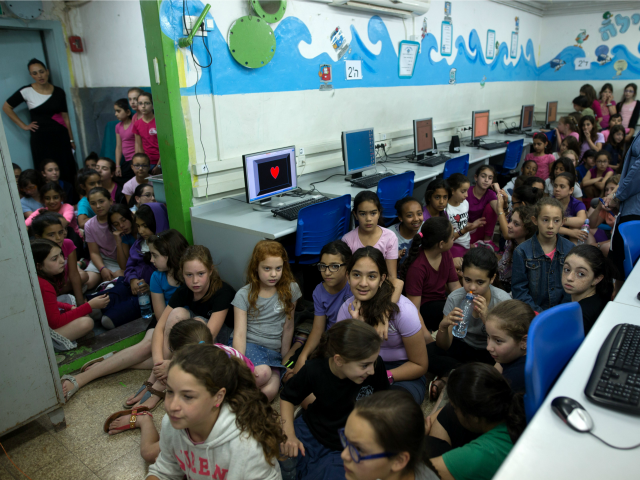TEL AVIV – Fighting between Islamic State-affiliated militants and the Egyptian army in the Sinai Peninsula has led to a 50% increase in trauma suffered by children in southern Israel who are hearing the sounds of explosions from across the border, the Hebrew news site Walla reported.
The Eshkol Regional Council (ERC) said anxiety levels in children had been on the rise since the last conflict with Gaza in the summer of 2014. Children and youngsters are having trouble falling asleep and are suffering from nightmares, as well as noise-related anxieties, and an acute fear of being left alone.
Many children near Israel’s southern border already suffer from post-traumatic stress following recent terrorism emanating from the Hamas-controlled Gaza, including fear of mortars and rockets as well as cross-border underground terror tunnels. A year after Operation Protective Edge in the Gaza border town of Sderot, at least 63% of children suffered from PTSD.
According to ERC chief Gadi Yarkoni, who himself was critically injured in a mortar attack on the last day of the 2014 Gaza war, the ongoing battles against IS operatives from over the Egyptian border have paralyzed the rehabilitation process from the Gaza conflict for many of Israel’s border communities.
Yarkoni said that psychologists, health professionals and educators were at hand to deal with the situation both for individuals and at the community level. He added that despite the difficulties, the population growth in these communities was actually on the rise – the best antidote to the security-related traumas.
“All these communities are focused on growth, development and maintaining a thriving communal life. We’re focusing on that and we believe that through ongoing development, as well as providing a variety of professional tools [to handle the trauma], we will be able to strengthen the communities’ robustness,” he told Walla.

COMMENTS
Please let us know if you're having issues with commenting.